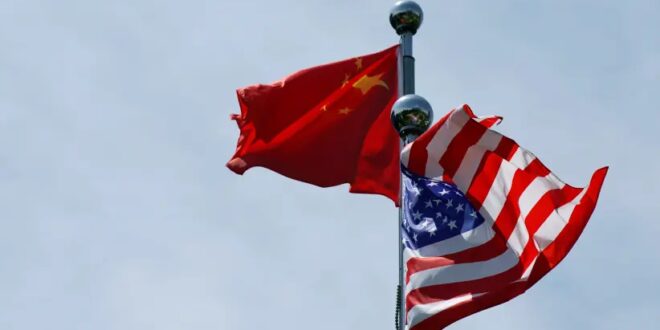President Joe Biden is keen to continue the Trump-era legacy of pressure on the People’s Republic, but Beijing won’t sit back and accept this behavior.
In recent years, the United States has expressed growing concern about the rise of China, and especially Beijing’s role in seeking to play a greater role in markets where the US was previously dominant.
This is especially the case when it comes to strategic infrastructure. This includes airports, roads, rail networks, desalination plants, pumping and power stations and also ports in Israel. US tensions with China are growing on numerous fronts, from disputes at sea in Asia, China’s anger over US relations with Taiwan as well as disputes over the origins of the pandemic and the handling of the COVID-19 crisis.
President Joe Biden is keen to continue the Trump-era legacy of pressure on the People’s Republic, but Beijing won’t sit back and accept this behavior. That means that the Middle East and Israel will be in the middle of a tug-of-war between Beijing and Washington.
This week it was reported that Israel has taken a new stance against allegations of China’s treatment and forced incarceration of its Uyghur minority, signing on to a condemnation issued at the United Nations Human Rights Council’s 47th session on Tuesday. Backed by Canada, Israel chose to join at Washington’s behest. Israel and the US vote together on other UN issues, such as those relating to Cuba.
The policy shift is important because China is a huge and important trade partner for Israel, and Jerusalem has increasingly developed its ties with the Middle Kingdom in recent years.
However, Beijing was also harshly critical of Israel’s recent war with Hamas, and China and Iran are growing closer. This means that the Jewish state could be put in the middle of more American-Sino tensions. The recent vote marked a shift in how Jerusalem views Beijing diplomatically. The decision to sign the statement was taken by Foreign Minister Yair Lapid, in coordination with Prime Minister Naftali Bennett, according to the Post.
Back in 2019, Washington increased pressure on Jerusalem regarding what many viewed as Israel trying to have it both ways: be both a key ally of the US, but also sell assets to China that might concern the US.
Much of this was done with short-term thinking. It was not because Israel was trying to forsake the Americans, it was just that Israel prefers short-term gains. A major spending bill in the US in 2019 as part of the National Defense Authorization Act said it was the “sense of the Senate” that “the United States has an interest in the future forward presence of United States naval vessels at the Port of Haifa in Israel but has serious security concerns with respect to the leasing arrangements of the Port of Haifa as of the date of the enactment of this Act; and should urge the Government of Israel to consider the security implications of foreign investment in Israel.”
The US has continued to warn Israel about the Port of Haifa and has asked for inspections. Israel has rejected these requests, according to reports. Meanwhile the US is looking to counter China in other areas as well, such as in Africa. US policy is focused on China worldwide, according to the US Institute of Peace.
This should be a warning to Israel. Jerusalem needs to make it clear it is an ally of the US.
On the other hand, when the US has clear demands of Israel or other regional partners, such as the Gulf states, Washington needs to make clear the redlines on China. If there are infrastructure projects the US is concerned about there also needs to be an answer for how Israel can continue those projects with others.
China is a rapidly expanding global economy with major expertise in many fields and China is hungry for Israel’s technology. Much of this can lead to positive relations with Beijing that won’t come under the focus of the US.
But there are other fields, such as aerospace or defense companies or strategic ports, that will be of importance, and Israel’s leadership needs to keep an eye on those issues and not naively blunder into the US-China struggle.
 Eurasia Press & News
Eurasia Press & News




